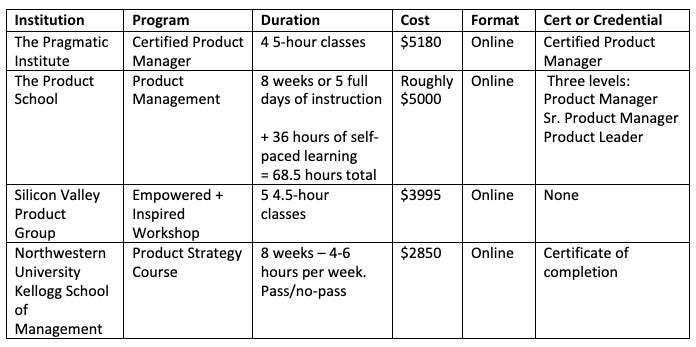Building the Product Manager Toolbox
Background, context, and the decision making framework driving this project.

My first job out of college was construction. I had just graduated and moved to a new, much bigger city. I didn’t have a long list of internships that I could fall back on, nor did I have the network to flex into a handful of interviews. I figured I would move down, set a daily job application goal, write some good cover letters, and have a calendar full of interviews by week’s end.
Nope.
Somewhere around week three of ten applications a day, seven days a week, and no real prospects to speak of I began to get a bit worried. I had made friends with one of my neighbors who ran a small, whole-home renovation business and had just lost his only full-time employee. I told him about my job hunt, he offered me the job and I took it.
Much like my later shift from Project to Product Management, I had some relevant experience within the industry. I had worked on rental properties, done general handyman jobs, spent a summer doing dirt work for a friend’s family construction company, etc., but nothing to the level of a complete renovation on a 150-year-old home with a half-a-million-dollar budget.
I needed a bigger toolbox.
So that’s what we did. We went to Home Depot, I listened to his advice, put the things he suggested in the cart, and walked out of there with a new tool bag, belt, hammer, paintbrush, level, utility knife, and a nice measuring tape.
Just the basics. Nothing more.
The real tools were earned. Watching and listening carefully to everything he said and did. Appreciating the time and attention he gave to show me how to do some skilled job more efficiently. Respecting the fact that he would spend 45 minutes walking me through the nuances of a plumbing job while paying me $15 an hour to listen. I was grateful and learned a ton.
This is how toolboxes are built, and I’m going to apply those same lessons to building my Product Management toolbox.
I started looking at different courses that, for a few grand and a half a week of time, claim to build your toolbox for you. The equivalent of walking into Home Depot, buying every shiny new power tool you can find, and boom, you're now a Contractor. Not my speed. So I did a bit of digging, found the curriculum for each of these $4000 courses, applied the following decision-making framework, and analyzed my options.
Decision Criteria:
Cost:
What am I really willing to pay for this information?
Is employer sponsorship an option?
Quality:
Is the information overly general or applied?
Will I be learning buzzwords and vocabulary, or will I be bolstering my critical thinking and strategic decision-making frameworks?
Time – Value Exchange:
Will this be worth the time and effort I put into this program?
Is my time better spent elsewhere?
Course Options:
Findings:
Is this something I can learn on my own?
Vocab – absolutely
General Theory – yes
Case studies – yes but inefficient
Application – not really outside of work, unless….
Does the premium for instruction seem worth the investment?
Vocab – no
General Theory – no
Case studies – yes, specifically for Northwestern’s program given the instructor
Application – yes
What is the certification premium ROI? If all four certifications hold equal weight, we have two real options:
Fast as possible – Get the cert as fast as you can and move on
Cheap as possible – choose the cert that cost the least amount of money
Decision: Pick two
Self-paced and free:
Examine the published curriculum from all four choices and work through the vocab and general theory topics on my own time
Write a short blog post, i.e. this project, on each topic using online sources to solidify and apply the knowledge
Instructor-led and paid (ideally by my employer):
Choose the cheapest option that will align with the highest instructor-led value props and cheaper means a higher likelihood that work will cover the cost
Receive a certificate
Get the full benefit of both course types for the cheapest price
Ideally Northwestern’s course
Conclusion:
This is the framework and background behind this blog and personal project. I’m going to work through a hybrid curriculum derived from the courses above and use the combo of research and blog post writing to build my Product Manager toolbox the hard way.
I hope that other folks new to the job find value in this exercise and get something out of following along. If not, I’m still going to use you all as accountability partners, so thanks in advance.




Alec, I definitely Appreciate the insight and transparency that you are bringing to the pathway of certification within both Agile and Product Development as a whole. Too often I feel as if the "quick and easy" certifications produce timid and wanting individuals. Making decisions understanding that there may not be a right or wrong helps move the ball toward the goal. Even more so knowing that there will be another decision upstream is essentially plotting your map to a deliverable product or product feature. Keep adding to the tool box!